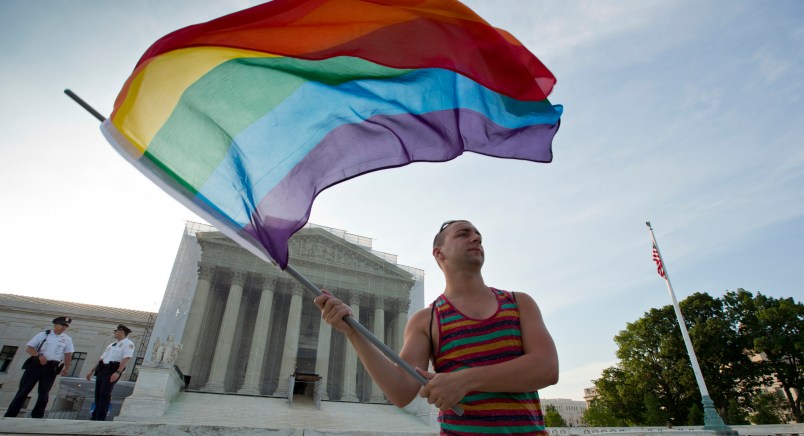The state of South Carolina argued in an amicus brief filed to the Supreme Court that the framers of the Constitution did not intend to force states to allow same-sex marriage, just as they did not prohibit states from discriminating against women in the Fourteenth Amendment.
As Slate noted, South Carolina Attorney General Alan Wilson argued in the brief that the Fourteenth Amendment, which guarantees equal protection, was only intended to ban discrimination based on race and that the authors “insisted upon leaving untouched those state laws depriving women of basic rights upon marriage to a man.”
“The Fourteenth Amendment framers went to considerable lengths to preserve the traditional family unit, even insisting upon the subordination of married women. With this in mind, they did not, by any stretch of the imagination, contemplate that same-sex marriage was required by the Amendment or its Due Process Clause,” Wilson wrote in the brief.
The brief does acknowledge that the framers’ views on women are no longer held by lawmakers in South Carolina, but argues that the history of the amendment still backs up same-sex marriage bans.
“The historic evidence concerning the treatment of women, presented as the views of the Fourteenth Amendment’s framers are not those of the State today. Seemingly anachronistic, such evidence is, nevertheless, reflective of the Amendment’s original meaning which we believe controls this case,” Wilson wrote.
The Supreme court will consider this year whether state bans on gay marriage are unconstitutional.
Numerous states with same-sex marriage bans have filed briefs defending their laws. The Kentucky governor argued that the state’s ban on same-sex marriage is not discriminatory because neither gay people nor straight people are allowed to marry someone of the same gender.







Someone needs to take these peoples’ law licenses away. I say that in all fucking seriousness as an attorney myself. This shit (and KY’s) doesn’t even pass the giggle test. Totally frivolous nonsense. When something sounds so utterly absurd, you’re not supposed to submit it to the Court. Moreover, on a practical level, all these cartoonish arguments do is highlight how desperate and out of arguments these idiots truly are.
The more they lose, the more ridiculous their arguments become.
IF the FRAmers WANTed GAY MARRY, they WOULd’ve PUT it IN THe CONstiTUtion.
I can see them putting the final touches on their brief saying, “Well, at least we won’t get an incomplete.”
“The law, in its majestic equality, forbids rich and poor alike to sleep under bridges, beg in the streets or steal bread.”
-Anatole France